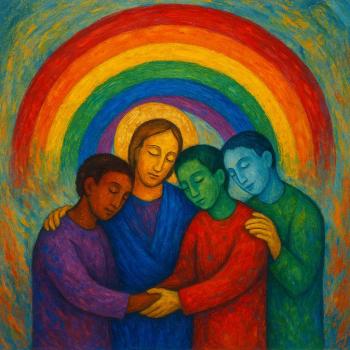Is Socrates Allegory of the Cave still relevant in today’s spiritual exploration? In Book VII of the Republic, Socrates tells us the story of the “Parable of the Cave.”
See: https://scholar.harvard.edu/files/seyer/files/plato_republic_514b-518d_allegory-of-the-cave.pdf
In this story, Socrates recommends that political rulers be philosophers. In this treatise, Socrates is describe a just city where rulers must rule by wisdom and not from opinion or self-interest.
The Allegory of the Cave: from Kleinman (2013):
People mistake the appearance of what is in front of them as reality and live in ignorance (quite happily, for ignorance is all these people know). However, when parts of the truth start to emerge, it can be frightening and can make people turn back. If one does not turn away from the truth and continues to seek it, he will have a better understanding of the world around him (and will never be able to return to that state of ignorance). The freed prisoner represents the philosopher, seeking a greater truth outside the perceived reality
In the Allegory of the Cave, you find the conundrum that surrounds our political system and many problems that have existed for years in society. There is a move with the most influential of our different systems to keep people ignorant to keep them in the dark. In this ignorance, we gain a sense of trust and complacency. We begin to fear when we start to realize the truth of the situation. In religion, true growth happens when one moves from prescribed faith to experiential faith. This is the same process that happens when you go to college and learn new things that may be distinctly different from what your family and socio-cultural upbringing has exposed you to.
Commentary on the Allegory of the Cave
We are like the prisoners in the cave. Ignorance keeps us shackled and forced to look at the cave’s wall. I am not one usually to comment pointedly on the situations that our country faces, but I feel it is a pastoral duty in this case.
For too long, our Christianity in America has pushed a narrative of naivete and ignorance. It is shown us shadows projected on our walls of life by the fire of reality. The shadows are the objects the church and other well-meaning religious leaders have placed before us to alter the narrative.
A prescribed, often fear based faith keeps our heads shacked to the walls of our faith so that we continuously see only shadows. But a new phenomenon has begun to arise in the form of deconstruction and a gradual movement towards a more mature faith. See my previous post about deconstruction: https://www..com/blogs/loveopensdoors/2024/04/a-creedal-faith-after-deconstruction/
As I have been teaching an intro to philosophy course over the last three weeks and realistically been studying for almost six months getting ready to teach it, I am continually reminded of the normalcy of questioning.
Questioning is normal
When our faith is based on believing what we are told to believe, we become frightened when our shadows which we accept as true are questioned. Yesterday, I was talking to a young man about his faith tradition. He was of a more conservative, literal bible approach kind of believer and when asked why I was no longer a pastor, I told him the church and I no longer saw eye to eye theologically. You could physically feel him revolt in disgust and visibly see him withdraw from the conversation.
A friend posted a Rachel Held Evans quote the other day which said, “most young adults I know aren’t looking for a religion that answers all of their questions, but rather a community of faith in which they feel safe to ask them.” After years of private clinical practice, I continually find this to be the case.
In the cave, some of the prisoners are liberated and they begin to turn around to face the fire. In doing so, they begin to climb out of the cave, and they begin to see the world as it is.
Transformation
Transformation is a spiritual practice that enhances healing and growth.
I remember when I was transitioning away from the Catholic Church to The United Methodist Church. I was in my early twenties and the Catholic Church and my call to ministry there was all I knew. I remember the intimidation, fear and anxiety that came with this. Suprisingly for me at the time, all my Catholic friends were supportive and loving towards me and my new transformation.
Transformation usually involves letting go of old ways of thinking. It requires a vulnerability that can be intimidating, especially if you have been looking at shadows all your life. Each one of us holds the potential for change.
Transformation begins by asking questions –
- What beliefs do we have that may be harming our soul because they do not serve the common good?
I witness a lot of angry and fearful people today. Fear causes one to be reactive. When we are reactive, our minds get clouded by emotions. IN this state of being, our ability to think rationally is impaired and we inadvertently hurt those around us.
- In the same vein, what attachments do we need to let go of?
I also talk to a lot of people who are stuck on their allegiance to toxic systems, whether it be family, society or even church. I teach clients to eventually name this and then notice the feelings that arise and then eventually learn to feel this and let this go.
None of this is easy for my clients and more than likely it will not be easy for you. If you are beginning to question, your faith, the shadows on the wall, understand that God is a God of love and will sit by you lovingly as you go through this. No matter how long it takes. Just like a loving parent would.
Reference:
Klienman, P. (2013). Philosophy 101: From Plato and Socrates to Ethics and Metaphysics, an Essential Primer on the History of Thought. Adams Media. https://www.amazon.com/Philosophy-101-Socrates-Metaphysics-Essential-ebook/dp/B00EKPKRPO/ref=sr_1_1?crid=1NK28D9WMEOXV&keywords=philosophy+101+paul+kleinman&qid=1701359454&sprefix=Paul+Kleinman%2Caps%2C327&sr=8-1
Roochnik, D. (2013, July 8). An Introduction to Greek Philosophy [Lecture]. The Great Courses. https://www.audible.com/pd/An-Introduction-to-Greek-Philosophy-Audiobook/B00DCY39RC?action_code=ASSGB149080119000H&share_location=pdp












